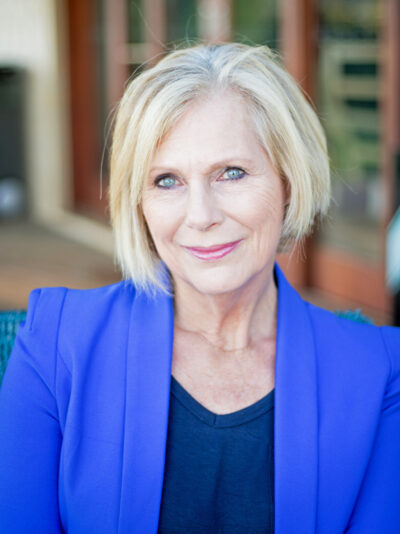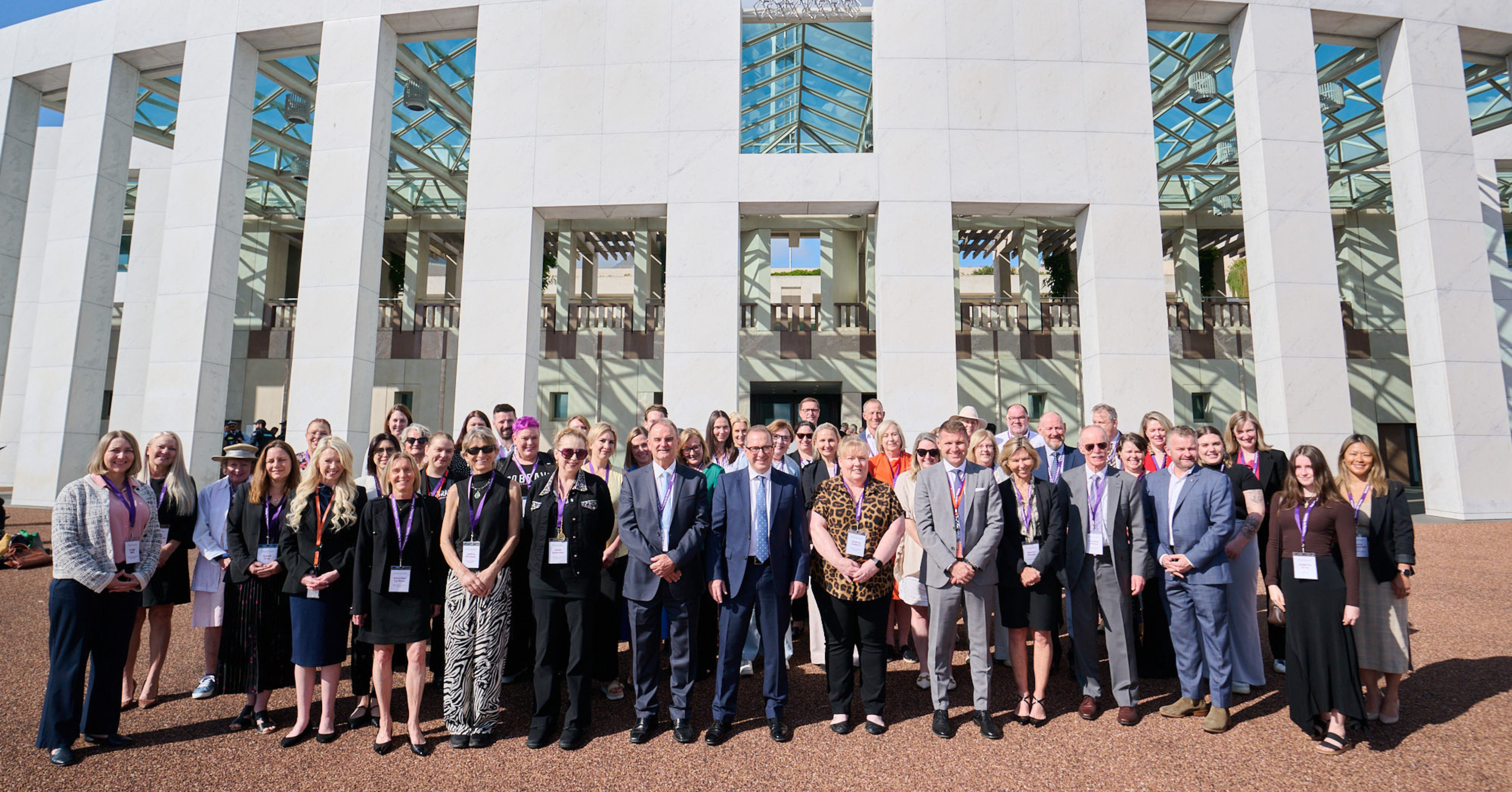Thyroid eye disease is a rare eye condition with few treatment options. Veronica has lived with it for 20 years and shares her story...... Read more >
How to handle tricky conversations about COVID-19 vaccination status
How to handle tricky conversations with friends and family about their COVID-19 vaccination status
How do you manage relationships with people who don’t share your views on COVID-19 vaccinations? Clinical counsellor and author, Dr Dawn Macintyre, PhD, shares her advice for handling those tough conversations in common scenarios.
by Rosemary Ainley, 24 October 2021
As COVID-19 vaccination rates rise and restrictions ease across Australia, many people are asking others about their vaccination status before spending time with them. But what do you do if their views conflict with yours?
Dr Dawn Macintyre is a clinical counsellor and public speaker with a PhD in Public Health. Dawn is also the author of several books including Living with Chronic Pain: From OK to Despair and Finding My Way Back Again and Nothing Changes if Nothing Changes: A Practical Guide to Finding the Right Counsellor. Dawn has increasingly been asked by her clients for advice on how to deal with difficult discussions about COVID-19 vaccinations and she shared this advice with us.
“There are always going to be people with alternative viewpoints to us,” said Dawn. “The difference now is the pandemic is affecting everybody, not just a small group of people. It’s a collective trauma that’s happening. When we are in a trauma state, we always react and respond very differently to what we do in a non-trauma state. Many of us are behaving in a way that is actually quite alien to us as individuals.”
“When we get anxious, different parts of our brain kick in. Our limbic system is the emotional part of our brain and our prefrontal cortex is the logical part of our brain,” Dawn explained. “ The trouble is, when we’re anxious, the emotional part of our brain takes over. That means our language can become illogical and judgemental.”

Judgemental behaviour can often cause factions in relationships whether they are family, friends or colleagues. Dawn says, “The most important thing is to try and give each other space and be respectful of that space, not try and prove one way or the other but to listen and also be very clear about what you feel is right for you and those you care for.”
She suggests we avoid talking about “our rights” when it comes to asking others about their vaccination status and deciding with whom we will associate. “Once we start using words like ‘our right’ that’s probably not ideal because that’s quite strong and defiant,” she said. Instead, Dawn suggests saying, “Look this is our position, this is where we sit and it matters to us” or “I appreciate that it’s not where you’re coming from and it’s not ideal, but that is the way it is for us”. That softens it a little bit.
Dawn also shared her tips for having these tricky conversations in several common relationship types, including:
- Couples
- Friends or family members from other households
- Service providers
Conflicting vaccination viewpoints within couples
It is not unusual for couples to have opposing viewpoints and beliefs about significant topics such as religion, politics or starting a family. However, when you believe your partner’s stance may significantly impact your health and safety it is important to know how to talk about it with them. “Particularly for young people who are, perhaps, at the age where they’re looking to start a family,” said Dawn. “They are unsure about issues regarding pregnancy and the impact on an unborn child.”
Dawn knows of several situations where couples have split up over conflicting opinions about the COVID-19 vaccines saying things like, “I can’t believe that that’s your value”. When one partner believes these vaccines reduce their risk of transmitting severe disease but the other doesn’t, the situation can lead to strong arguements that lead nowhere.
“I think it is about trying to have conversations, sometimes really robust ones, she said. “It’s ok to have emotional discussions to get it out. Instead of trying to prove to your partner that you are right, it’s important to respect that they have a different perspective. That’s the reality. But, at the end of the day, you need to find a common ground”.
“You don’t have to agree or to convince the other person to change their mind. We are not looking for universal agreement. We are looking for universal respect,” Dawn continued. “When couples split up over things like this, usually, one feels very strongly and one feels really sad that the other person feels so strongly that they’ve taken that stance. It does make me wonder what other things they would have taken a stance on over time if they weren’t getting the person to do what they wanted them to do”.
If you really feel stuck in a situation like this, Dawn suggests talking to a professional. “You may not need a psychologist but talk to a counsellor. Ask for tips on navigating something so fundamental to a healthy relationship,” she said. “They are very real concerns for people in that situation. Perhaps, those conversations can be professionally facilitated. I’m finding myself doing that a fair bit with families. It doesn’t mean I’ve necessarily resolved the issue, but I do my best to help them find neutral ground and to move on from there.”

Meeting up with friends or family from other households
After long periods in lockdown, more and more Australians are now able to meet in groups. However, instead of simply choosing a place and time to meet, many people are asking those they plan to see about their vaccination status. Thinking about how to raise this awkward question can be extremely stressful, especially if you suspect someone might not share your viewpoint or if you don’t know how they might respond.
People feeling especially concerned, even if they are fully vaccinated, include:
- Parents with children too young to be vaccinated.
- People with chronic health conditions.
- People living with elderly parents or other vulnerable people.
- Frontline workers.
Here is an example, you might be someone living with an autoimmune condition or immunocompromised and wary of meeting up with a friend who isn’t vaccinated. Before the pandemic, you were very close and often hugged when greeting each other. You don’t want to cause an arguement or jeopardise the friendship but you also want to feel safe. What do you do?
Dawn believes there are constructive ways to get past this. She suggests making it very clear you are doing what you think is right for yourself and those around you. “Tell them you’d love to see them (under any relevant public health measures) and make it clear that this is non-negotiable. What is also non-negotiable is your values and your choices,” she said. “That shouldn’t impact your relationship, you’d just like them to be respectful of your stance. You don’t want to be judged or stigmatised. That has no benefit. All it does is cause harm.”
Dawn also suggests discussing alternative ways to stay in contact, such as video calls, until you feel comfortable meeting in person again. “We’re just in a holding pattern at the moment. This, too, will pass, as they say. We will learn to live with COVID-19 and amongst it. As we learn more about the virus, we’ll learn more about how to deal with it in everyday life,” she said.
Is it ok to ask service providers about their vaccination status?
What do you do if you are worried about being in close proximity with someone such as a hairdresser, allied health professional or carer? What about a tradesperson coming into your home? Is it ok to ask them if they have been vaccinated?
“Absolutely yes,” said Dawn. “I think it will become the norm and we’ll all need to work towards that. If it’s important to you, then it’s ok to tell them what you need in order to feel safe. If only working with vaccinated people is what you need to do, then do it. I don’t think there is any need to feel pressured in any way if that is your view.”
Dawn believes it is important for us to trust people. “It’s a personal thing. Some people might ask to see an immunisation certificate. I guess that’s their choice. I would like to trust people to do the right thing and not risk my health on the basis of their honesty,” she said. “If I felt it was important, I would ask about their vaccination status at the time of making the appointment and I would ask it respectfully. If they say no, I’d say, ‘I hope you can appreciate it’s important to me to have someone that comes in that is immunised for my own personal reasons’. You don’t have to give any other explanation.”
What if people won’t accept your viewpoint about vaccinations?
What do you do if someone continues to force their opinions on you or they won’t accept what you’ve asked of them?
“There are so many individual sets of circumstances that a “one-size-fits-all” solution won’t work,” said Dawn. “It’s become particularly clear in these very upfront conversations that are happening around COVID-19. Everyone’s situation is different but what is not different is the importance of not being judgemental and respecting each other’s feelings and beliefs. That is universal.”
You need to be prepared to listen to the other person’s point of view, but you don’t want to be talked at. If it gets to that, Dawn suggests drawing a line in the sand that says, “Well, hang on a second. I don’t think this is very productive. Let’s talk about this later.” You can also reaffirm that your position is non-negotiable.
Dawn believes it is important to work out what your boundaries are and be clear and consistent but not pedantic about them. For example, you could say, “This is the way it is. Take it or choose not to. I appreciate that fact too. This is my choice. That’s your choice”.
“I think the key is not to bully people. Treat everybody with compassion. That’s a human trait that we all like to aspire to. To be compassionate and gentle but not judgemental. To listen to their perspective and consider it. You can’t go wrong” said Dawn.
People to talk to you if you need support
Talking to other members of the family is a great start, but if that’s your sticking point, then you probably need to have someone to help facilitate that process better. Dawn suggested the following options.
If you are in the workforce, your organisation may have an Employment Assistance Program (EAP). This is a counselling and advisory service for employees, and where applicable their families, to seek professional assistance for any personal or work-related problem. Contact your employer to learn about the services you can access.
Visit the Australian Counselling Association (ACA) or Psychotherapy and Counselling Federation of Australia (PACFA) websites. They have a list of counsellors that you can search for by area. Most also offer consultations via phone or Zoom, which could be helpful, especially if you have couples or other people involved.
If you are very anxious about your situation, you can also go to your GP and ask them to organise a Mental Health Treatment Plan. Your GP will talk through your needs and refer you to an appropriate type of mental health professional, such as a psychologist who works from a counselling perspective. The plan does not cover relationship counselling, but you can use it to get help to manage anxiety, managing emotions and a range of other issues.
If this article has raised feelings that concern you, visit the Lifeline website or call 13 11 14.
Further reading
Catch the latest news
Read more stories
Learn about our advocacy
Get involved




This Post Has 0 Comments